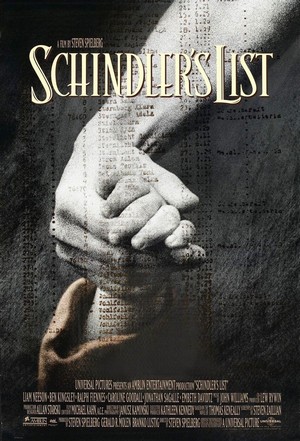
Schindler's List (1993)

Raiting: ![]() 9 /10
9 /10
Genre: War
Director: Steven Spielberg
Stars: Liam Neeson, Ralph Fiennes and Ben Kingsley
Country: United States
Release date: 15 December 1993
Length: 195 minutes


Raiting: ![]() 9 /10
9 /10
Genre: War
Director: Steven Spielberg
Stars: Liam Neeson, Ralph Fiennes and Ben Kingsley
Country: United States
Release date: 15 December 1993
Length: 195 minutes